
Laurence van Cott Niven is an American science fiction writer. His 1970 novel Ringworld won the Hugo, Locus, Ditmar, and Nebula awards. With Jerry Pournelle he wrote The Mote in God's Eye (1974) and Lucifer's Hammer (1977). The Science Fiction and Fantasy Writers of America gave him the 2015 Damon Knight Memorial Grand Master Award.

Orphans of the Sky is a science fiction novel by American writer Robert A. Heinlein, consisting of two parts: "Universe" and its sequel, "Common Sense". The two novellas were first published together in book form in 1963. "Universe" was also published separately in 1951 as a 10¢ Dell paperback. The work presents one of the earliest fictional depictions of a generation ship.

Dangerous Visions is an anthology of science fiction short stories edited by American writer Harlan Ellison and illustrated by Leo and Diane Dillon. It was published in 1967 and contained 33 stories, none of which had been previously published.
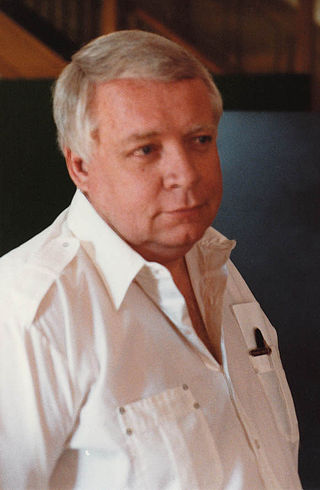
Algirdas Jonas "Algis" Budrys was a Lithuanian-American science fiction author, editor, and critic. He was also known under the pen names Frank Mason, Alger Rome in collaboration with Jerome Bixby, John A. Sentry, William Scarff, and Paul Janvier. In 1960, he authored Rogue Moon, a novel.
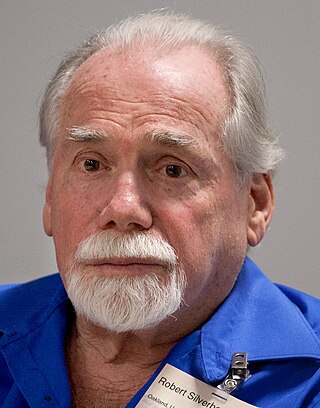
Robert Silverberg is an American author and editor, best known for writing science fiction. He is a multiple winner of both Hugo and Nebula Awards, a member of the Science Fiction and Fantasy Hall of Fame, and a Grand Master of SF. He has attended every Hugo Award ceremony since the inaugural event in 1953.
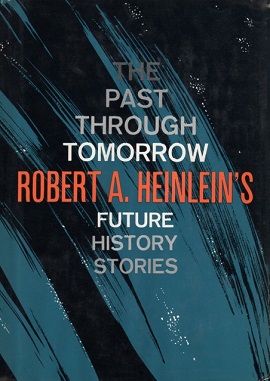
The Past Through Tomorrow is a collection of science fiction stories by American writer Robert A. Heinlein, first published in 1967, all part of his Future History.

Hawksbill Station is a science fiction novel by American writer Robert Silverberg. The novel is an expanded version of a short story first published in Galaxy Science Fiction in August 1967. The novel was published in 1968 and was released in the United Kingdom under the title The Anvil of Time.
"Neutron Star" is an English language science fiction short story by American writer Larry Niven. It was originally published in the October 1966 issue of Worlds of If. It was later reprinted in the collection of the same name and Crashlander. The story is set in Niven's fictional Known Space universe. It is notable for including a neutron star before their existence was widely known.
"'Repent, Harlequin!' Said the Ticktockman" is a dystopian science fiction short story by American writer Harlan Ellison that was published in 1965. It is nonlinear in that the narrative begins in the middle, then moves to the beginning, then the end, without the use of flashbacks. Stylistically, the story deliberately ignores many of the conventional "rules of good writing", including a paragraph about jelly beans which is almost entirely one run-on sentence. First appearing in the science fiction magazine Galaxy in December 1965, it won the 1966 Hugo Award, the 1965 Nebula Award and the 2015 Prometheus Hall of Fame Award.

Time and Stars is a collection of science fiction short stories by American writer Poul Anderson, published in 1964.

World of Ptavvs is a science fiction novel by American writer Larry Niven, first published in 1966 and set in his Known Space universe. It was Niven's first published novel and is based on a 1965 magazine story of the same name.

A Gift From Earth is a science fiction novel by American writer Larry Niven, first published in 1968 and set in his Known Space universe. The novel was originally serialized as "Slowboat Cargo".
"If All Men Were Brothers, Would You Let One Marry Your Sister?" is a science fiction short story by American writer Theodore Sturgeon. It first appeared in Harlan Ellison's anthology Dangerous Visions in 1967.

World's Best Science Fiction: 1966 is an anthology of science fiction short stories edited by Donald A. Wollheim and Terry Carr, the second volume in a series of seven. It was first published in paperback by Ace Books in 1966. It was reprinted by the same publisher in 1970 under the alternate title World's Best Science Fiction: Second Series. An Italian edition appeared in December 1966 under the title Il vento del sole.
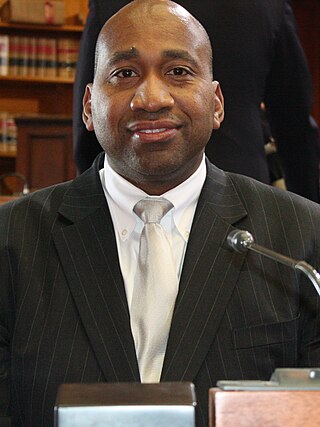
Russell Earl Holmes is an American politician who serves as a Democratic member of the Massachusetts House of Representatives. First elected in November 2010, he represents the Sixth Suffolk District, which includes the Boston neighborhoods of Dorchester, Hyde Park, Jamaica Plain, Mattapan and Roslindale.
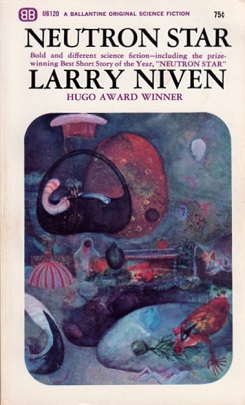
Neutron Star is a collection of science fiction short stories by American writer Larry Niven, published in April 1968. The individual stories were published in If and Galaxy Science Fiction in 1966–1967, under Frederik Pohl as editor.

Why Call them Back From Heaven? is a 1967 novel by Clifford D. Simak, which became the initial volume in the Ace Science Fiction Specials line.

Carlos González is a member of the Massachusetts House of Representatives. He was sworn into office in January 2015. A resident of Springfield, Massachusetts, he was elected as a Democrat to represent the 10th Hampden district. González is president of the Massachusetts Latino Chamber of Commerce, a member of the Massachusetts Black and Latino Legislative Caucus, and a former aide to mayor Michael Albano.
Organ transplantation is a common theme in science fiction and horror fiction. Numerous horror movies feature the theme of transplanted body parts that are evil or give supernatural powers, with examples including Body Parts, Hands of a Stranger, and The Eye.

Nebula Award Stories 3 is an anthology of award-winning science fiction short works edited by Roger Zelazny. It was first published in the United Kingdom in hardcover by Gollancz in November 1968. The first American edition was published by Doubleday in December of the same year. Paperback editions followed from Pocket Books in the U.S. in February 1970, and Panther in the U.K. in November 1970. The American editions bore the variant title Nebula Award Stories Three. The book was more recently reissued by Stealth Press in hardcover in June 2001. It has also been published in German.














